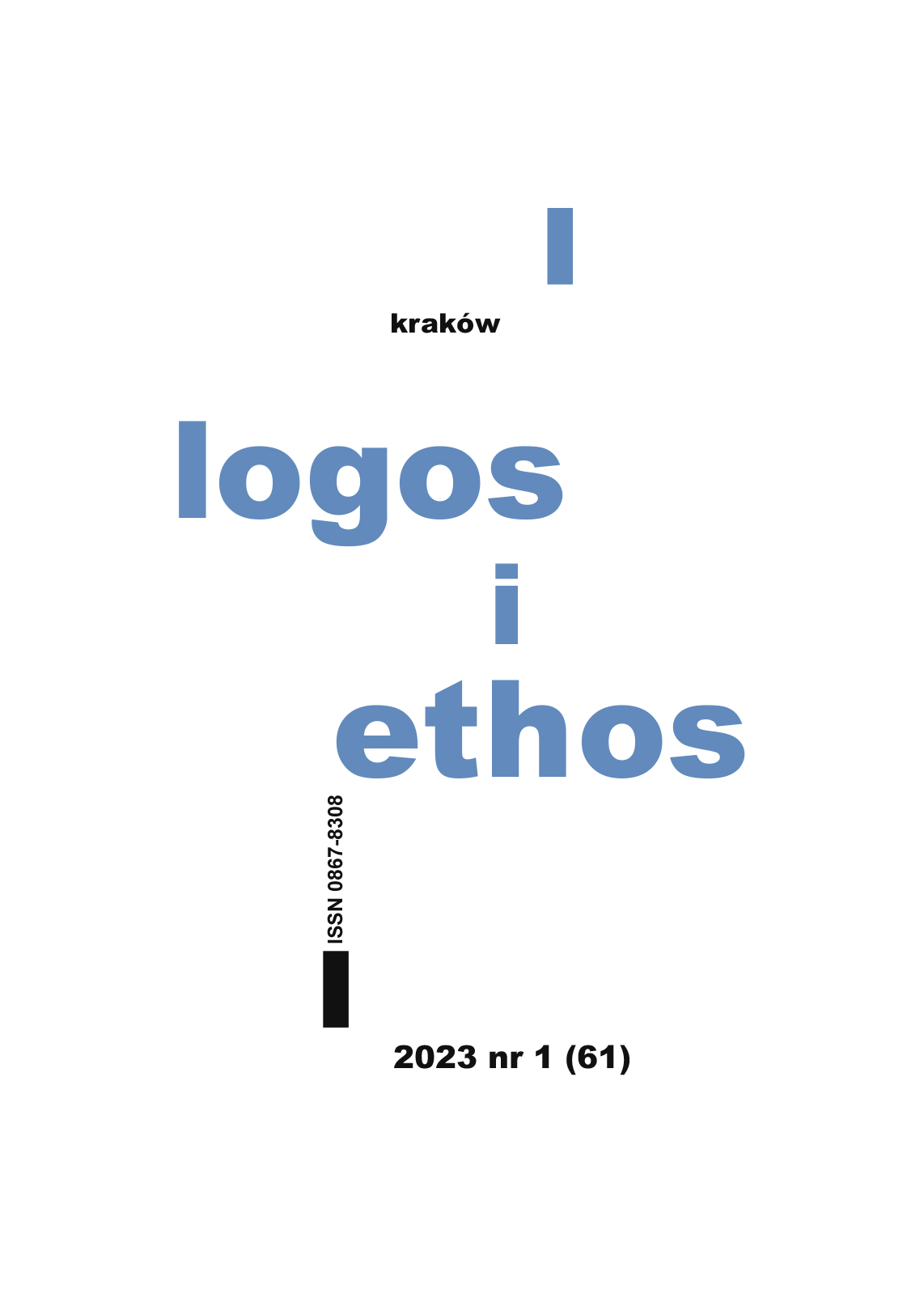From experience to a method. The significance of Karol Wojtyła’s habilitation dissertation in the development of his concept of philosophical cognition of man
DOI:
https://doi.org/10.15633/lie.61108Keywords:
Karol Wojtyła, Wojtyła’s habilitation, Scheler and Wojtyła, experience, exeprience in anthropology, phenomenological experience, phenomenological methodAbstract
The purpose of the article is to show the significance of Wojtyła’s habilitation dissertation in the development of his concept of philosophical cognition of man. His assessment of the usefulness of Scheler’s ethical system for Christian ethics occupies an intermediate position between the demand to take into account first-person experience in cognition in his initial phase of practising philosophy and the proposal to use the phenomenological method to analyse this experience, and the transition from experience to a system, contained in Person and Act. In his habilitation dissertation, Wojtyła analysed the question of man’s inner experience, emphasising its significance for ethics and anthropology. A proper approach to this experience is possible through the phenomenological method. The analysis of Scheler’s system allowed Wojtyła to conclude that although the use of the phenomenological method is necessary in philosophical cognition, it is not sufficient. This method does not cover everything that experience brings. It should also be applied appropriately so that the essential contents of experience are not overlooked. He showed a concrete manner of application of this method to philosophical cognition, and of the combination of this method with the metaphysical method in Person and Act.
References
Bednarski F. W., Wzbogacenie metaetyki tomistycznej w rozprawach kard. K. Wojtyły, “Roczniki Filozoficzne” 28 (1980) 2, p. 17–45.
Gałkowski J. W., The Place of Thomism in the Anthropology of K. Wojtyla, “Angelicum” 65 (1988) 2, p. 181–194.
Hołub G., Mazur P. S., The Experience of Human Being in the Thought of Karol Wojtyła, “Filosofija. Sociologija” 28 (2017) 1, p. 73–83.
Mazur P. S., The Principle Operari Sequitur Esse in Karol Wojtyła’s Study of Person and Act, “The Thomist” 86 (2022), p. 119–137.
Mazur P. S., Wojtyła and Krąpiec. Two Ways of Re-emperizing Thomistic Anthropology, “Roczniki Filozoficzne” 71 (2023) 1, p. 273–288.
Półtawski A., Filozoficzna droga Karola Wojtyły, “Kwartalnik Filozoficzny” 41 (2013) 1, p. 5–14.
Ślipko T., The Concept of Value in the Ethical Thought of Cardinal Karol Wojtyla, “Forum Philosophicum” 1 (2006), p. 7–28.
Wojtyła K., O humanizmie św. Jana od Krzyża, “Znak” 6 (1951) 1, p. 6–20; reprinted in: Ku jedności świata. Wybór artykułów z miesięcznika “Znak” w 60. rocznicę powstania pisma, ed. M. Bardel, Kraków 2006, p. 91–104.
Wojtyła K., Problem doświadczenia w etyce, “Roczniki Filozoficzne” 17 (1969) 2, p. 5–24.
Wojtyła K., Rozważania o istocie człowieka. Considerations on the Essence of Man, trans. J. Grondelski, Lublin–Roma 2016.
Wojtyła K., Ocena możliwości zbudowania etyki chrześcijańskiej przy założeniach systemu Maksa Schelera, Lublin 1959.
Wojtyła K., “Person and Act” and Related Essays, trans. G. Ignatik, Washington, D.C. 2021.
Wojtyła K., Wykłady lubelskie, Lublin 2006.
Downloads
Published
Issue
Section
License

This work is licensed under a Creative Commons Attribution 4.0 International License.
Authors who publish with this journal agree to the following terms:
- Authors retain the copyright and full publishing rights without restrictions, and grant the journal right of first publication with the work simultaneously licensed under a Creative Commons Attribution 4.0 International License that allows others to share the work with an acknowledgement of the work's authorship and initial publication in this journal.
- Authors are able to enter into separate, additional contractual arrangements for the non-exclusive distribution of the journal's published version of the work (e.g., post it to an institutional repository or publish it in a book), with an acknowledgement of its initial publication in this journal.
- Authors are permitted and encouraged to post their work online (e.g., in institutional repositories or on their website) prior to and during the submission process, as it can lead to productive exchanges, as well as earlier and greater citation of published work (See The Effect of Open Access).

